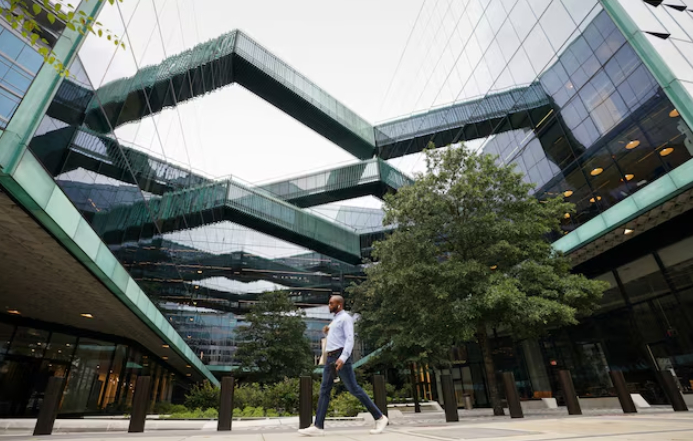
Fannie Mae, the mortgage giant regulated by the Federal Housing Finance Administration (FHFA), recently announced the resignation of several board members, sparking significant market attention. This personnel change comes at a critical juncture for Fannie Mae, mired in controversy over its reforms and privatization efforts, and could have profound implications for its future development.
The announcement revealed that four senior executives, including Chief Business Officer Peter Niculescu, Executive Vice President and General Counsel Beth Wilkinson, Executive Vice President and Chief Information Officer Rahul Merchant, and Senior Vice President of Government and Industry Relations Duane Duncan, have officially resigned. Fannie Mae did not elaborate on the reasons for the resignations, but industry analysts believe they are closely related to the current US government-driven reforms of the "two housing agencies" and regulatory pressure. Fannie Mae and its sister company, Freddie Mac, were taken over by the US government due to massive losses from high-risk loans during the 2008 financial crisis. They received over $151 billion in taxpayer bailout funds, with estimates of a total of up to $259 billion. For over a decade thereafter, the two companies remained under government oversight, and frequent changes in their executive ranks became the norm. From Daniel Mudd and Richard Theron to Herbert Allison and David Moffitt, several CEOs have departed due to pressure for reform or regulatory disputes.
Recently, the Trump administration has accelerated the privatization of Fannie Mae and Freddie Mac, planning to divest the government bailout through the largest IPO in history and return the two companies to the market. However, calls for a merger of the two companies to improve efficiency, including from hedge fund tycoon Bill Ackman, have left the market divided over the path forward for privatization. Against this backdrop, the collective resignation of board members has undoubtedly heightened market concerns about the prospects for reform.
Analysts suggest that the resignations may be driven by multiple factors. First, William Pulte, the new head of the Federal Housing Finance Agency, has launched a strong overhaul since taking office. He has already removed over a dozen board members from Fannie Mae and Freddie Mac and appointed a new team, including members allied with Elon Musk. Pulte's reforms, which emphasize housing supply growth and market-oriented transformation, may conflict with the philosophies of some executives. Second, Congress continues to question executive compensation at Fannie Mae and Freddie Mac, significantly increasing regulatory pressure given the massive taxpayer bailout costs. Furthermore, uncertainty surrounding the privatization process has led to internal strategic disagreements, potentially prompting some members to depart.
Fannie Mae's stock price fluctuated following the resignation announcement. Although the stock recently reached a 16-year high due to IPO expectations, the leadership turmoil may affect investor confidence. Market attention has shifted to the successor, and whether the new team can balance regulatory requirements with market pressures will be crucial.
Trump administration Commerce Secretary Lutnick recently hinted that the IPO process for Fannie Mae and Freddie Mac may proceed earlier than expected, and emphasized the importance of protecting shareholder value. If privatization proceeds smoothly, Fannie Mae and Freddie Mac could potentially break free from their long-term reliance on government bailouts. However, they will also face challenges in market risk and the stability of the housing finance system. Analysts warn that any delays or missteps in the reform process could rekindle systemic risks.
The resignation of Fannie Mae's board members reflects deep-seated structural contradictions within the US housing finance system. Amidst the intertwined political jockeying, regulatory pressure, and market changes, the reform of Fannie Mae and Freddie Mac, a process that has lasted over a decade, is reaching a decisive crossroads. In the coming months, the strategic choices of the new management team and the direction of government policy will directly impact the direction of the US housing market and, by extension, the stability of global financial markets.

According to a recent report by Rich Asplund, a columnist for Barchart, the global sugar market is currently experiencing a complex and profound supply-demand game.
According to a recent report by Rich Asplund, a columnist f…
On January 13th local time, the three major US stock indice…
Recently, the 2026 edition of the MIT Technology Review lis…
On January 15, 2026, the US military announced the seizure …
At the 2026 J.P. Morgan Healthcare Conference, a joint anno…
For much of 2025, the market was rethinking whether the dol…